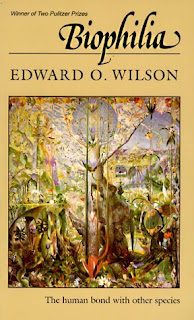Mark Wigley’s whole argument about the recent changes in the culture of space is outlined through his redefinition of the work ecology. Through changing the way ecology is understood, you understand how the architecture of our habitats has evolved. A definition of ecology as used in his essay:
e·col·o·gy [ih-kol-uh-jee]
–noun
1. the world of gadgets and communication technology has dematerialized ecology into an organization of information flows: (a)“The technological world becomes the new nature, the artificial nature that needs to be analyzed in ecological terms.” (b) “In ecological terms, human flesh is but a transitional event in the continuous redistribution of energy. With the arrival of the artificial body, ecological management is nothing more than the management of hyper-extended flows of nervous energy.”
2. mobilization of the home and transformation of architecture into continuously recirculating images has already integrated it into the ecological framework: (a)“It is the ongoing extension of the house that has produced the idea of a single ecosystem whose flows can be managed with new ecological principles,” (b)“The ‘cyclical mobility’ of images through space and time is aligned with the reconfiguration of architecture on ecological principles. Simulation is understood as a means of species survival.”
3. Ecological thinking, as the management of resources and flows, is relevant to an architecture comprised of a flow of images: (a)“The expendable image circulating through popular culture becomes a model for an ecology of resources” (b) “Ecological theories of flow are more useful than ever before.”
habitat | transition
hab·i·tat [hab-i-tat]
–noun
1. the natural environment of an organism; place that is natural for the life and growth of an organism: a tropical habitat, a marine habitat.
2. the place where a person or thing is usually found: Paris is a major habitat of artists.
3. a special environment for living in over an extended period, as an underwater research vessel.
4. a place of residence; dwelling; abode.
tran·si·tion [tran-zish-uhn, -sish-]
–noun
1. movement, passage, or change from one position, state, stage, subject, concept, etc., to another; change: the transition from adolescence to adulthood.
2. Music . a. a passing from one key to another; modulation. b. a brief modulation; a modulation used in passing. c. a sudden, unprepared modulation.
